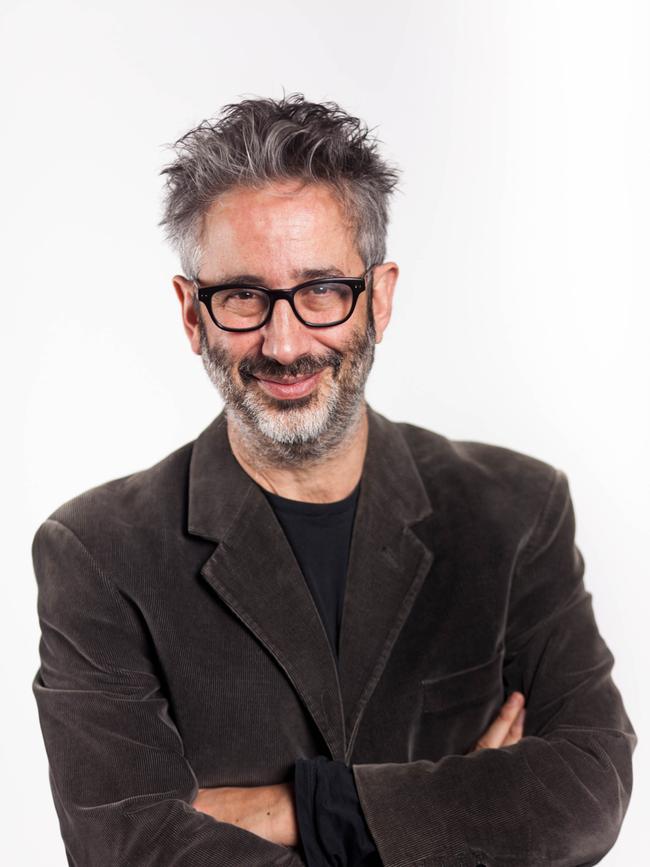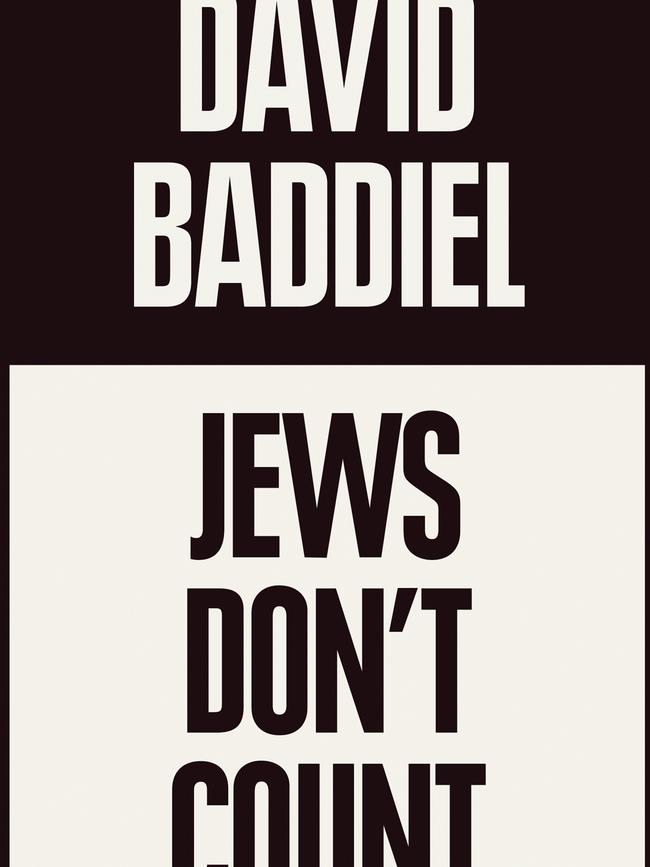When it comes to racism, Jews don’t count, argues David Baddiel
British comedian David Baddiel argues that ‘Jews don’t count’ when it comes to arguments about racism and diversity.

Some thoughts about Jews and money. First, it is always dangerous, however cleverly you word it, to say Jews are rich. Jews aren’t rich, particularly. Some are. And some aren’t.
A study by the non-partisan wealth research firm New World Wealth found that 56.2 per cent of the 13.1 million millionaires in the world were Christian, while 6.5 per cent of them were Muslim, 3.9 per cent were Hindu and 1.7 per cent were Jewish.
But either way — and this is very un-Marxist of me — f--k off about money. Because money doesn’t protect you from racism.
As I say, some Jews are rich. My grandparents were: they were industrialists in East Prussia. They owned a brick factory. They had servants. By the time they were fleeing to England with my mother as a baby in 1939, however, that had all been robbed from them. And by the end of the war, most of their family — and therefore a large section of mine — had been murdered.
It doesn’t matter how rich you are, because the racists will smash in the door of your big house that they know you don’t deserve anyway and only own because you’re Jews.
Second, people think it’s not an insult to link Jews with money, because money’s a good thing, isn’t it? In a capitalist society, we admire people with money. Except of course, we don’t. We envy and resent people with money. And we particularly envy and resent people with money around whom we can create narratives, racist narratives, that suggest that there is something dark, ill-gotten and exploitative about how they, and all their brethren they are in league with, got that money.

Besides being linked with words like “rich” and “shrewd”, Jews have never been cool (unlike their American counterparts – think Saul Bellow in 1963, cool as f--k). And beyond not being cool, there is also, around Jews, and their Jewishness, some shame. Here is a conversation I had with a woman at a wedding once:
WOMAN: Oh you’re David Baddiel. You’re Jewish, aren’t you?
ME: Yes.
WOMAN: I’m Jewish. Although you probably can’t tell, can you? That’ll be the nose job.
ME: Right …
WOMAN: I never normally tell people. That I’m Jewish, I mean.
ME: Why not?
WOMAN: (as if it’s obvious) Well. People don’t like ’em.
Amazing though this wedding guest’s attitude was – her breezy acceptance of Jew-hate, and also, of something even deeper, the acceptance of a default distinction between Jews and People — I don’t think it was that unusual.
The actress Miriam Margolyes, in an interview in The Daily Telegraph in 2015, said: “Look, nobody likes Jews. You can’t say people like Jews. We’re not popular. We’re too smart to be liked.”

Margolyes is different from the wedding guest in that she is outspokenly progressive and of the Left, and, like many left-wing Jews, carries particular shame around Israel. But her statement feels deeper than that, more universal and eternal.
It also has another very Jewish wrinkle in it, which is Jews’ own reflection back to mainstream culture of the high – low status duality projected on to them: we are hated because we are smart. Significantly, one of the things that marks Jewishness out as different from other ethnicities is that it can be hidden.
One of the many contradictory beliefs held by anti-Semites is that Jews are incredibly, obviously Jewish – because they all have big noses and swarthy skin and dark hair and are fattened up with their own greed – and simultaneously difficult to spot, which is what allows them to get under the radar of non-Jews and work their despicable secret doings.
This is why the Nazis were able to have cartoons of Jews that depicted them in a very recognisable, uniformly grotesque manner – big noses, swarthy skin, dark hair, fattened with their own greed – but also extensive and complex checks for spotting Jews. And, of course, the requirement of Jews to wear armbands that identified them as Jews.
This ability to hide is important in the omission of Jews from identity politics, because most identities, sexual ones aside, are fairly impossible to hide. Jews can hide; they can pass as non-Jews. So the assumption appears to be that because they are not immediately visible, they don’t suffer racism. Jews don’t really suffer from being considered different, because they don’t look different.
But consider what the woman at the wedding said. She doesn’t tell people she’s Jewish, because “people don’t like ’em”. Which would suggest that Jews don’t really suffer from being thought of as different as long as people don’t know they’re Jews: as long as they, like gays in the closet, hide.

Which means that Jews are only OK as long as they can pass as non-Jews, and that Jews – once identified as such – will be thought of as different.
I’m not someone given to hiding my Jewishness. My Twitter biography has always been one word: Jew.
This is for a number of reasons, none of them to do with religion. First, it’s funny. Second, it’s a statement against Jewish shame, and indeed Jewish absence, against Jews not counting, by putting it – however comically – front and centre of my identity. And number three, it’s a reclamation, although a twisted one.
“Jew” has a strange status, as a bad word. All other minorities, in the process of reclaiming hate speech, are working with words that aren’t actually the words in the dictionary that describe them. They are reclaiming slang insults. Whereas “Jew” is actually what I am.
So it’s interesting that those concerned about offence tend to say “Jewish people” rather than “Jew”. Because even though it is the correct word, and not a slang word coined by racists, the deep burial of it in a bad place in the Christian unconscious means that it feels insulting anyway. The avoidance of the word brings home, in fact, the systemic racism of Judaeo-Christian culture.
The problem (for those fighting anti-Semitism) is that Jews occupy a social-cultural grey area. Jews, although marginal are not thought of as marginalised. Jews don’t represent anything outside of themselves.
No victory is claimed by championing their experience, and this leads to their subtle exclusion. When thinking about discrimination and marginalisation, Jews don’t count.
This is an edited extract from Jews Don’t Count (HarperCollins Australia) by David Baddiel, out now.



To join the conversation, please log in. Don't have an account? Register
Join the conversation, you are commenting as Logout